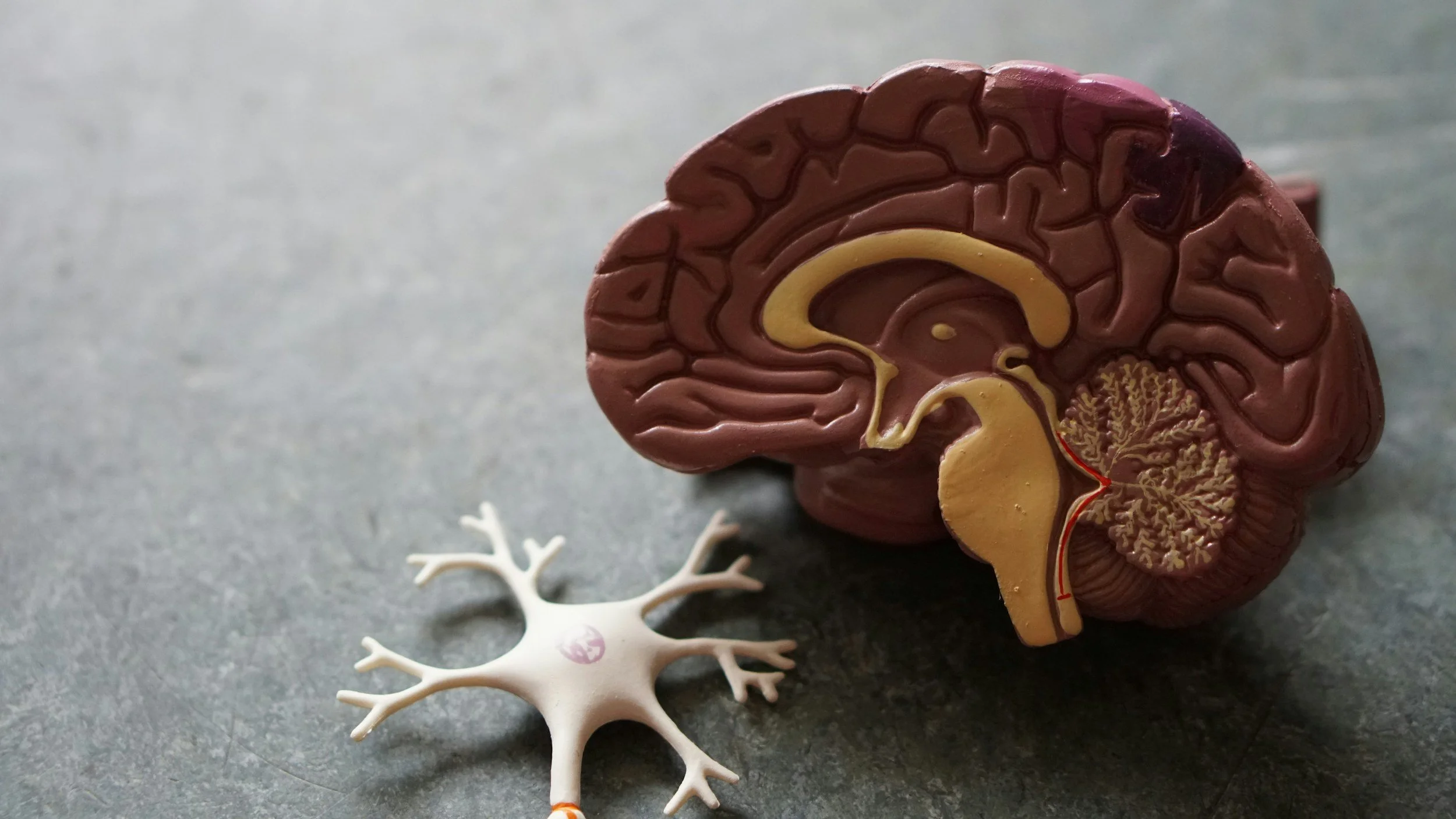5 Early Nutrition Habits That Protect Your Brain from Dementia(According to Epigenetic Science)
What if protecting your brain started decades before symptoms appear?
Recent research shows that your daily choices — what you eat, drink, and even how you unwind — can influence how your genes behave. Through epigenetics, we now understand that habits can “turn on” protective genes and “turn off” those that promote inflammation and degeneration.
For professionals in fast-paced cities like Toronto, where long hours, social drinks, and stress are part of daily life, taking a preventive approach early can make a world of difference.
Here are five science-based nutrition and lifestyle habits that can protect your brain at the cellular level.
1. Prioritize Omega-3 Fatty Acids — and Keep Balance with Omega-6
Your brain is about 60% fat, and omega-3 fatty acids (especially DHA and EPA) are essential for neuron structure and communication.
But what truly matters is the balance between omega-3 and omega-6 fats.
Modern diets — even “healthy” ones — tend to be overloaded with omega-6 from vegetable oils (sunflower, soybean, corn) and nuts. While these fats are necessary, excessive omega-6 increases inflammation and raises your body’s need for omega-3s to restore balance.
That’s why it’s crucial to include fatty fish (salmon, sardines, mackerel) regularly.
Recommended intake: Adults aged 30–40 should aim for about 250–500 mg of combined EPA and DHA daily, roughly 2–3 portions of fatty fish per week.
Women: lower end of the range.
Men or highly active individuals: upper end.
These needs can vary depending on factors such as:
total dietary fat intake and omega-6 consumption
alcohol or caffeine use
stress levels
hormonal status
and overall metabolic health.
🧬 Epigenetic insight: Each person’s ability to absorb and utilize fatty acids is unique. An epigenetic report can reveal how efficiently your cells process these essential fats, showing whether your body needs more DHA/EPA or better omega-3/omega-6 balance to support brain protection.
👉 Want to learn more about how to balance your omega-3 and omega-6 intake naturally?
Read our next blog: “The Omega Balance: How the Right Fats Keep Your Brain Sharp.”
2. Keep Blood Sugar Stable — Protect Your Brain’s Energy Supply
Your brain runs almost entirely on glucose, but not too much of it. Spikes and crashes in blood sugar strain neurons and are linked to insulin resistance in the brain — a condition sometimes called type 3 diabetes.
Focus on balanced meals: protein + fiber + healthy fat at each sitting, and limit refined carbs.
Smart swaps:
Replace pastries with Greek yogurt and berries
Choose quinoa or brown rice instead of white rice
Snack on nuts instead of chips
🧬 Epigenetic insight: Stable glucose levels help maintain optimal gene expression in neurons and reduce oxidative stress that accelerates aging.
3. Add More Antioxidants — Defend Against Cellular Damage
Stress, alcohol, and pollution generate free radicals — unstable molecules that damage brain cells. Antioxidants act like a cellular cleanup crew.
Eat the rainbow: berries, spinach, kale, beets, turmeric, olive oil, green tea.
These compounds support DNA stability and preserve neuron integrity.
🧬 Epigenetic insight: Antioxidants support DNA methylation — one of the key mechanisms protecting the brain from premature aging.
4. Be Aware of Hidden Risks: Alcohol, Smoking, and Cannabis
For many young professionals, evenings and weekends include social drinks or recreational cannabis — but the science is increasingly clear: even moderate use can influence long-term brain health.
Alcohol: A 2023 Oxford-led study analyzing over 500,000 participants found that any level of alcohol consumption — even light drinking — was linked to a steady increase in dementia risk, with a 15% higher risk for every three-fold rise in consumption.
Heavy drinkers (8+ drinks/week) also show more brain lesions and Alzheimer-like changes in autopsy studies.Alcohol depletes B-vitamins, alters fatty acid metabolism, and increases oxidative stress — directly opposing the protective effects of omega-3s.
Smoking: Tobacco smoke restricts oxygen flow and triggers chronic inflammation in the brain’s blood vessels. Long-term smokers face both vascular dementia and Alzheimer’s risk through oxidative damage and mitochondrial dysfunction.
Cannabis: While often seen as harmless, new Canadian research (ICES 2024) found that individuals who visited hospital or ER for cannabis use had a 23% higher risk of dementia within 5 years, rising to 72% within 10 years compared with non-users.
Moreover, epigenome-wide studies show that cannabis use alters DNA methylation patterns — the very mechanism through which genes express or silence — potentially influencing aging and neural regulation.
The Combined Effect
When alcohol, cannabis, or smoking are layered over a diet low in omega-3 and high in omega-6, the brain’s resilience drops.
These lifestyle factors can:
increase oxidative stress and inflammation
deplete protective fatty acids
disrupt neurotransmitter balance
and accelerate epigenetic aging.
🧬 Epigenetic insight: Your body’s detoxification and repair pathways vary genetically. Through an epigenetic assessment, you can identify whether your cellular resilience to oxidative stress or your fatty acid metabolism needs additional support — long before damage shows up in symptoms.
5. Stay Hydrated — But Smartly: Why Plain Water Isn’t Always Enough
You might be drinking ~2 litres of water daily (which is a good habit) — but if most of it is plain water without adequate minerals or supporting nutrients, you may still be leaving your brain and body under-hydrated. Here's why, and what to watch out for.
The Physiology: Water, Electrolytes & Osmosis
Roughly 60% of your body weight is water. Of that, about two-thirds is intracellular (inside cells) and one-third is extracellular (between cells and in the blood). Osmosis
Water doesn’t work in isolation — it needs electrolytes (minerals like sodium, potassium, calcium, magnesium, chloride) to help maintain fluid balance, nerve conduction, muscle contraction and cellular biochemistry. Osmosis+2Healthline+2
Osmosis: Water moves from a region of lower solute (mineral/electrolyte) concentration to a region of higher solute concentration in order to balance fluid across cell membranes. If your electrolytes are too diluted (because you’ve been drinking lots of plain water or lost minerals via sweat/stress), water may move out of cells or not be efficiently taken up. Osmosis+1
If you pour in a lot of plain water but your body lacks the necessary electrolyte “anchor”, you may actually provoke more urination (your kidneys flush the excess) and reduce effective cellular hydration.
🧬 Epigenetic insight: Proper hydration and micronutrients optimize the cellular environment for gene expression, improving focus and cognitive endurance.
👉 Dive deeper in our next post: “Hydrate Intelligently: Why 2 Litres of Water May Not Be Enough.
The Epigenetic Perspective: Prevention Starts Now
As a Dietitian, prevention isn’t about waiting for symptoms — it’s about understanding your biology today.
Our 96-indicator epigenetic report analyzes how your cells handle nutrients, stress, and environmental exposures like alcohol or smoke.
With these insights, we build your personalized 90-day program to realign your biology toward balance, energy, and brain protection.
Your genes are your foundation — but your habits write the story.
Start shaping yours consciously, one meal and one decision at a time.
Ready to Learn More?
Protect your brain, balance your lifestyle, and discover what your biology needs to thrive.
👉 Learn more about Dietisha’s Epigenetic Report





